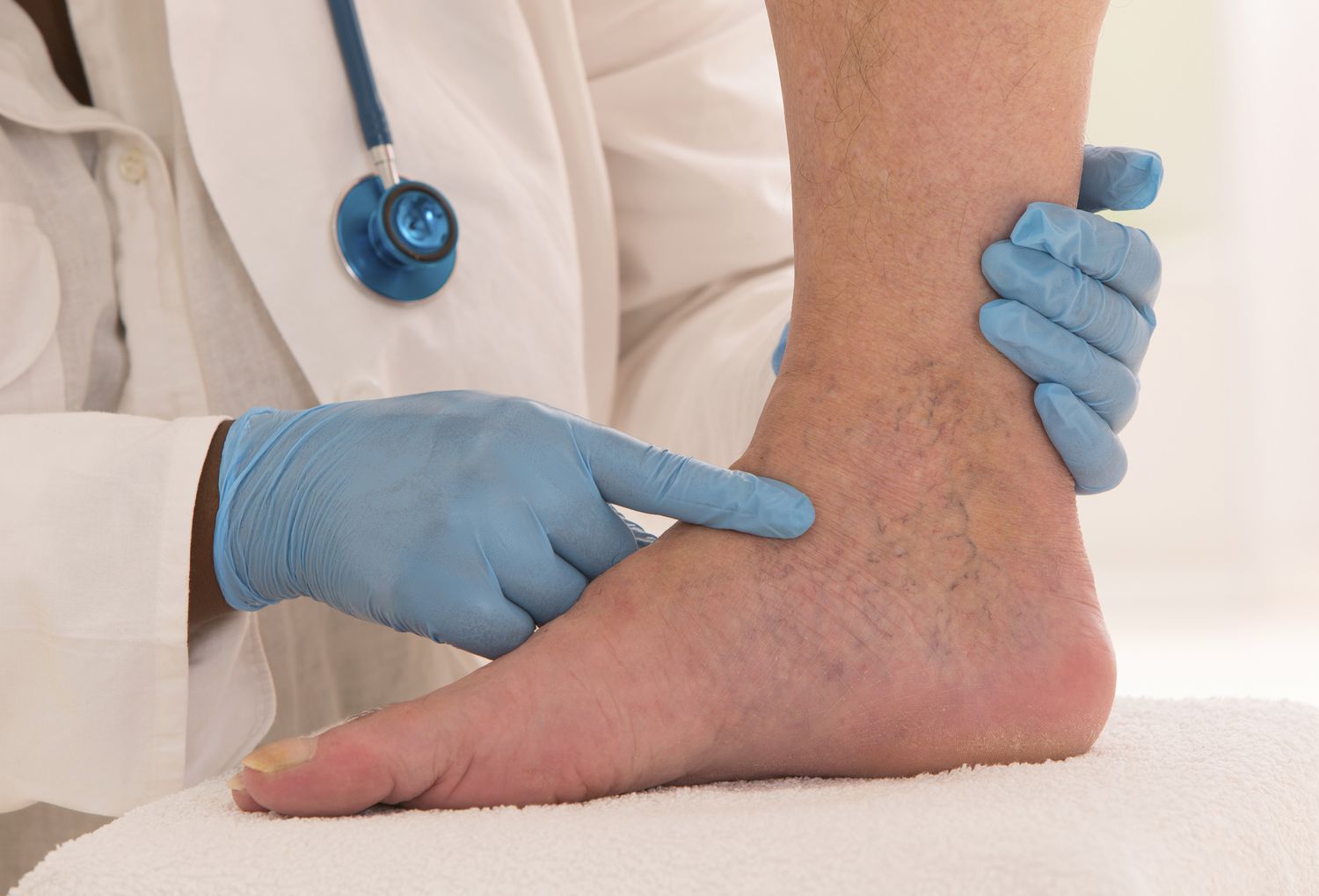Polycystic ovary syndrome, also called PCOS, is a common health condition that affects many women for the duration of their childbearing years. It mainly affects hormone levels and causes problems like missed periods, high levels of male hormones (androgens), and small cysts on the ovaries. One of the main concerns women with PCOS face is unexpected weight gain. Along with this, some may also notice bloating or swelling caused by water retention, which can add to the discomfort.
Let’s break down how PCOS leads to weight gain, what causes water retention, and how to spot and manage these symptoms in a simple and natural way.
What is PCOS?
PCOS is a condition where a woman’s hormones are out of balance. It affects how the ovaries work, making it harder for eggs to release regularly. This can lead to missed or irregular periods and difficulty getting pregnant. The condition also causes a higher level of male hormones, which can lead to acne, extra hair on the face or body, and trouble losing weight.
Why does PCOS cause weight gain?
Not everyone with PCOS gains weight, but it is very common. Here we are providing you with the main reasons why it occurs:
1. Hormone imbalance
If you have PCOS, most probably you have higher levels of androgens and insulin. Insulin is a hormone that aids in controlling your blood sugar. When the body becomes resistant to insulin, it makes more of it. High insulin levels can lead to weight gain, especially around the belly area. Androgens (male hormones like testosterone) can also increase appetite and fat storage.
2. Insulin resistance
Women with PCOS more commonly face insulin resistance problems, which means your body doesn’t respond appropriately to insulin. As a result, insulin levels go up, which leads to storing more fat and makes it difficult to burn it. Insulin resistance is very common in PCOS and is a big reason why weight gain happens.
3. Thyroid problems
Some women with PCOS also have a slow thyroid (hypothyroidism). The thyroid controls metabolism, and if it’s not working well, it can slow down the body’s ability to burn calories, making weight gain more likely.
4. Inflammation
PCOS is linked to low-grade inflammation, which can affect hormone balance and lead to more fat being stored in the body. Inflammation also makes it harder for the body to use insulin properly, making weight gain worse.
Water retention in PCOS: What you should know
Aside from fat-related weight gain, many women with PCOS also notice bloating and puffiness. This can be due to water retention. Water retention means your body is holding on to extra fluid, which can make you feel heavier and swollen.
Common Signs of Water Retention in PCOS
Here we are providing you with the common signs of water retention in PCOS. After knowing these, you can easily identify your condition if you have PCOS water retention, so keep reading and stay connected with us:
- Swollen feet, ankles, or hands
- Puffy face, especially in the morning
- Tightness in rings, shoes, or clothes
- Bloating in the belly sudden increase in weight over a day or two
- Feeling heavy or uncomfortable even without eating much
Note: Water retention can make it feel like you’re gaining fat quickly, but it’s often just fluid buildup.
What causes water retention in PCOS?
There are a few reasons why PCOS might cause you fluid retention:
1. Hormonal fluctuations
Changes in estrogen and progesterone levels during your cycle can lead to bloating and swelling. Females with PCOS generally have irregular hormone levels that can lead to water retention.
2. High insulin levels
Just like it causes fat gain, too much insulin can also make the kidneys hold on to sodium (salt), which leads to the body keeping more water.
3. Poor blood flow
Women with excess weight, especially around the belly, might have weaker blood circulation in the legs and lower body. This can lead to swelling, especially in the feet and ankles.
4. Low physical activity
Sitting for long hours or not moving enough can worsen fluid retention. Physical activity helps your body pump out extra fluids.
Other common PCOS symptoms that come with weight gain
Let’s delve in to the common PCOS symptoms that can lead you to weight gain, keep reading
- Irregular periods: Missed or unpredictable periods are a top sign of PCOS.
- Acne and oily skin: Hormones trigger more oil production, leading to pimples.
- Hair issues: You may experience hair loss or hair thinning on the head and extra hair on the chest, back, and more commonly on the face.
- Tiredness: Many women with PCOS feel low in energy due to hormone imbalance or poor sleep.
- Mood swings: Depression, anxiety, and mood issues are also common.
How to manage weight gain and water retention in PCOS
Here are some natural and easy ways to feel better and reduce both weight gain and bloating:
1. Eat balanced meals
- Focus on a diet that keeps your blood sugar steady:
- Choose high-fiber foods such as whole grains, lentils, and oats.
- Eat lean proteins such as chicken, eggs, or tofu.
- Add healthy fats like avocado, nuts, and olive oil.
- Avoid processed snacks, white bread, and sugary drinks.
2. Stay active
Try to move your body every day. A 30-minute walk, dancing, or yoga can make a big difference. Exercise helps improve insulin sensitivity, burn calories, and reduce water buildup.
3. Drink more water
It may sound odd, but drinking water helps flush out extra fluids and reduce bloating. Make sure to drink a minimum of 8 glasses daily.
4. Cut down on salt
Eating too much salt can make the body hold on to water. Try to reduce salty snacks, processed foods, and canned soups.
5. Sleep well
Not getting enough sleep can raise stress hormones and insulin levels. Try to get restful sleep at least 7 to 8 hours a night.
6. Manage stress
Chronic stress can worsen hormone imbalances. Deep breathing, meditation, or spending time in nature can help keep stress in check.
7. Try herbal support (with doctor approval)
Some women use herbal teas like dandelion or peppermint to reduce bloating. However, it is crucial to check with your healthcare provider before using new supplements.
Medical help for PCOS-related weight issues
If home remedies don’t make enough change, immediately discuss it with your gynecologist. They may advise you:
- Metformin: Metformin is a medicine that helps lower insulin levels and can support weight loss.
- Hormonal birth control: To regulate periods and reduce male hormone effects.
- Weight loss medications: In some cases, your doctor might prescribe medicine to help with weight control.
Risks of PCOS and excess weight
If not managed well, PCOS-related weight gain and water retention can lead to
- Type 2 diabetes
- Heart disease
- Infertility
- Sleep apnea
- Joint pain
- Higher risk of endometrial cancer
- Taking care of your body early can prevent these problems.
Conclusion
PCOS can make it harder to maintain a healthy weight and may cause uncomfortable symptoms like bloating and swelling due to water retention. But the good news is—there are many ways to take control.
Simple changes in your food choices, exercise, sleep, and stress levels can go a long way. And if you need extra help, there are medical treatments that can make managing PCOS easier.
Most importantly, remember you’re not alone. Many women are dealing with the same challenges. Be kind to yourself, take one step at a time, and talk to a healthcare provider who understands PCOS








